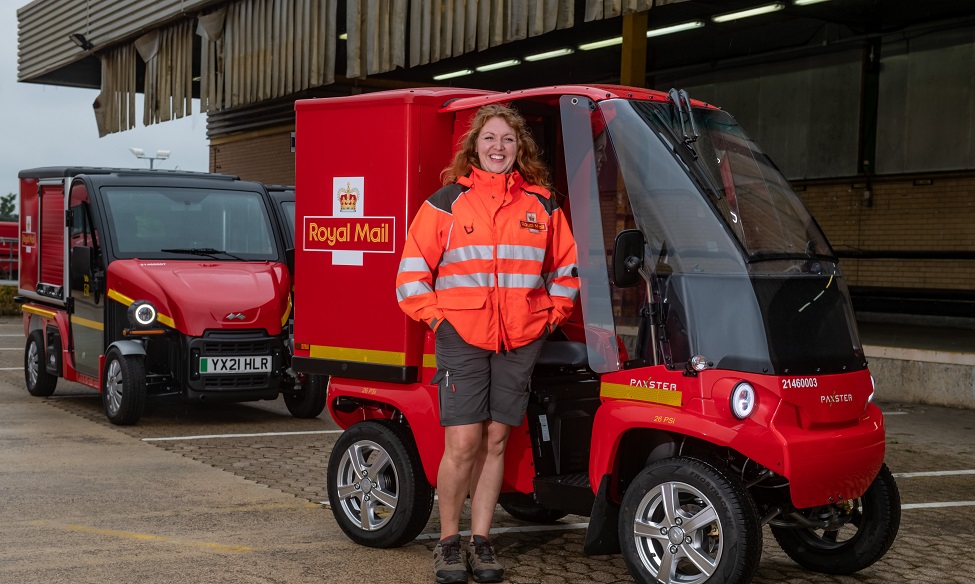
Royal Mail: we intend to leave no stone unturned in trialling new technologies

Royal Mail is to trial two types of Micro Electric Vehicles (MEVs) for letter and small parcel deliveries as the Company steps up its drive to further reduce emissions associated with its operations: the Paxster Cargo and the Ligier Pulse 4.
Roughly the size of a golf buggy or a quad bike, the vehicles will be assessed in residential areas as a potential lower carbon alternative to larger vans, which are typically shared by two posties. The trial will assess whether giving two posties access to separate vehicles could provide greater flexibility on busy routes in a more environmentally friendly way.
Liveried in traditional Royal Mail red, the vehicles have been specially designed to help postmen and postwomen deliver letters and smaller parcels on the daily round in a secure and efficient way. The six-month trial will see a selection of vehicles operating in each of five locations across the UK: Edinburgh, Crewe, Liverpool, Swindon and London.
Simon Thompson, Chief Executive Officer at Royal Mail said: “It’s really exciting to see these micro electric vehicles making their way into our daily deliveries. At Royal Mail we’re committed to keep on reducing our environmental impact and we intend to leave no stone unturned in trialling new technologies and new ways of delivering to help us do that. As our fantastic posties make most deliveries on-foot, this already means we have the lowest reported CO2e per parcel of major UK delivery companies. From drones to electric vehicles, fuel efficient tyres to bio-CNG trucks, we’ll keep on innovating to reduce our environmental impact even further.”
The Micro Electric Vehicles (MEVs)
The new MEVs are designed to help postmen and women manage the growing number of parcels on the daily round in an environmentally friendly way.
With a load size of between 1.2m3 and 2.0m3, the vehicles can accommodate more than an average daily round’s worth of letters and small parcels. The vehicles are charged using a standard three-pin plug, making charging more flexible.
Once the trial period has ended, Royal Mail will make a decision on whether to roll out this category of vehicles more widely across its fleet as a complement to more conventional vehicles.










